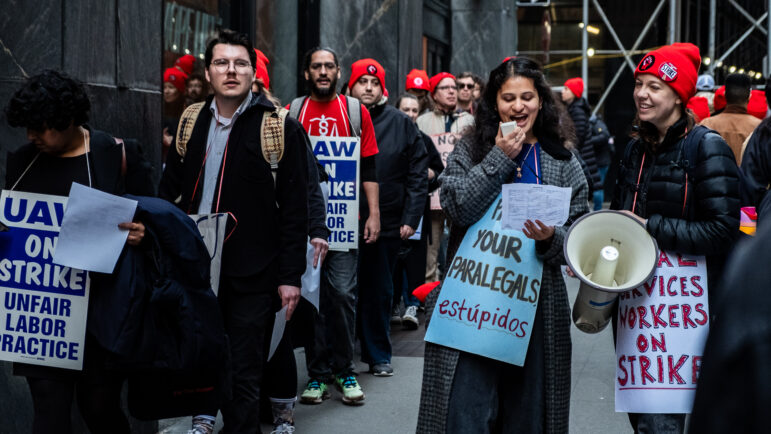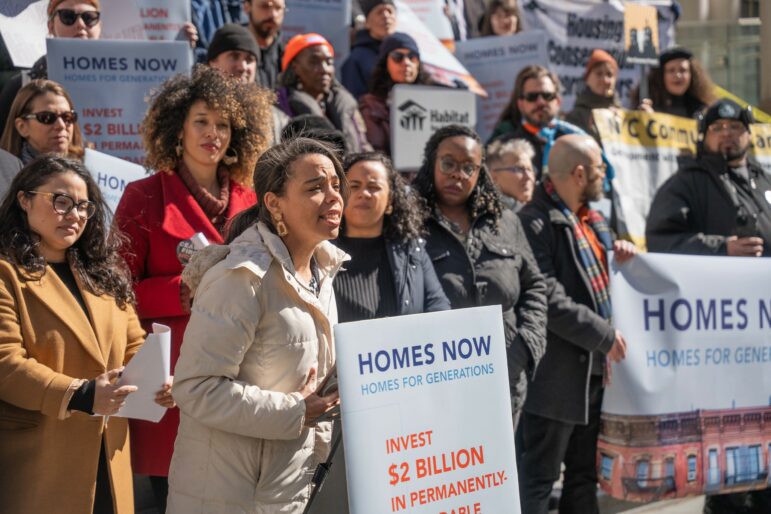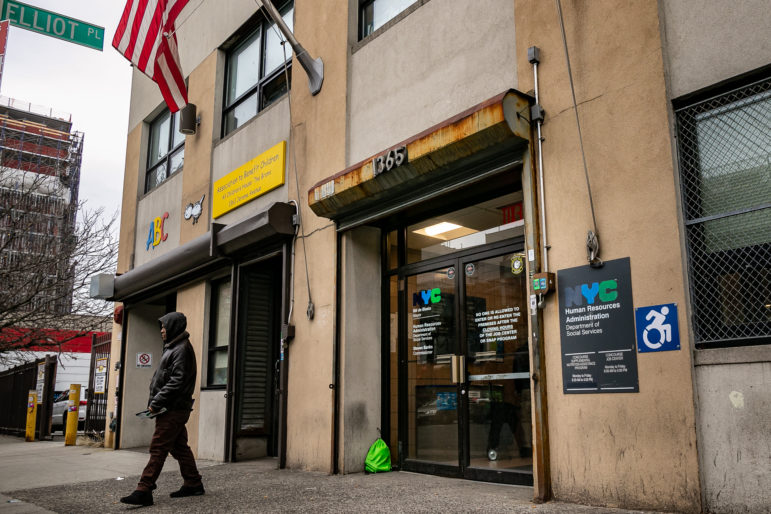When Pedro Espada Jr. stepped down from the podium in the back of La Luna Lounge in Tremont after giving a short, fiery and somewhat confusing concession speech into a crush of reporters, the small but raucous crowd began chanting.
“ESPADA! ESPADA! ESPADA!” they bellowed.
One of the most vocal chanters was Mike J. “Hollywood” McCray, “a.k.a ‘Nine Milli,’ but not because I like guns, if you know what I mean,” he said. When asked what he thought about Espada’s loss, McCray’s face momentarily dropped. “He lost? I thought he won.”
Laura (“but everyone calls me ‘Cookie'”) Rosario was equally perplexed. “We win? No, we lost?” she said. No matter, Rosario said, “I’m proud and I’m glad I worked for him. I’m still a winner.”
Rosario and McCray were typical of Espada’s supporters last night. They didn’t realize what was saying to them – there were no TVs in the place to show results – and they didn’t believe any of the negative press surrounding Espada’s re-election campaign, even as it became the overriding theme of nearly every news story about him.
McCray, sporting a Pittsburgh Steelers jersey and toting a Heineken, said he voted for Espada because “he comes to the hood. Homeboy is all over,” he said. “And he gave me some of them platanos the other day.”
After Espada exited, McCray and others provided an animated background for television reports filming their segments for the evening news.
Sitting at one of the tables, sipping a Budweiser and chatting to two other older white men, was Steve Pigeon, the Buffalo political activist who became Espada’s $150,000-a-year general counsel after helping him orchestrate last summer Senate coup, along with billionaire Tom Golisano.
“Obviously, I’m disappointed,” Pigeon said, adding that he felt coverage of the race was obviously “one-sided” and that the media had turned Espada into some kind of “Beelzebub.”
“There was no fair reporting about him,” Pigeon said.
No one gave Espada credit for bringing some reform to Albany as a result of briefly siding with Republicans last summer, Pigeon said, citing the end of “three-men-in-a-room” decision making and the empowering of committee chairs. (Many pundits brushed the reforms off as mostly cosmetic at the time.)
Talking to reporters, Espada said much the same thing. “What I tried to do was become an independent voice,” he said, “at a great cost to myself and my family.”









